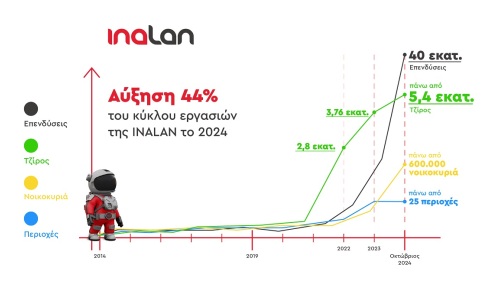
Cuts in special payrolls
Cuts in special payrolls
As it seems the cuts in special payrolls (military, police, justice officials, NHS doctors, academics, TEI teachers, researchers, clergy, diplomats etc.) of 12% on average are being finalized and will apply even retroactively from July 1 this year, as specified by law.
UPD:
As it seems the cuts in special payrolls (military, police, justice
officials, NHS doctors, academics, TEI teachers, researchers, clergy,
diplomats etc.) of 12% on average are being finalized and will apply
even retroactively from July 1 this year, as specified by law.
Even though the economic team is looking at alternative interventions, the fact that it must ensure the implementation of this year's budget, and find measures totaling 13.5 billion euros for the biennium 2013-2014, means that the clipping of special payrolls will not be avoided.
However, the relevant ministries are pressing so that uniformed combatants are exempted from special payroll cuts this year. But cuts in special payrolls are already a given for 2012-2013 (relating to approximately 250,000 public sector workers).
The possibility of complete elimination of residual holiday and leave benefits, not only for current employees but also for public sector pensioners, remains under discussion. Serving employees receive a total of 1,000 euros a year (500 euros at Christmas and 250 euros at Easter and in the summer) and pensioners 800 a year (400 euros at Christmas, 200 euros at Easter and in the summer).
Regarding the extent of redundancy, two scenarios are now being examined according to government officials because of the objections that occurred among government partners.
The first scenario provides that those who qualify for the new type of redundancy will receive 60% of the basic salary for three years. After this period the employees will leave the public sector. The measure will not apply to those employees that were hired through the ASEP process.
Even though the economic team is looking at alternative interventions, the fact that it must ensure the implementation of this year's budget, and find measures totaling 13.5 billion euros for the biennium 2013-2014, means that the clipping of special payrolls will not be avoided.
However, the relevant ministries are pressing so that uniformed combatants are exempted from special payroll cuts this year. But cuts in special payrolls are already a given for 2012-2013 (relating to approximately 250,000 public sector workers).
The possibility of complete elimination of residual holiday and leave benefits, not only for current employees but also for public sector pensioners, remains under discussion. Serving employees receive a total of 1,000 euros a year (500 euros at Christmas and 250 euros at Easter and in the summer) and pensioners 800 a year (400 euros at Christmas, 200 euros at Easter and in the summer).
Regarding the extent of redundancy, two scenarios are now being examined according to government officials because of the objections that occurred among government partners.
The first scenario provides that those who qualify for the new type of redundancy will receive 60% of the basic salary for three years. After this period the employees will leave the public sector. The measure will not apply to those employees that were hired through the ASEP process.
The economic team is also planning to place in redundancy status all employees who have committed a disciplinary offense or have an administrative inquiry ordered against them. In addition, employees with limited qualifications that are employed in organizations and public bodies which are merging or closing are also considered for redundancy. The measure will also include employees under a private contract of indefinite duration, and those who are close to the time of their pension.
According to the second scenario, officials are thinking of implementing a system of "pre-retirement maturation", which will provide for the withdrawal of all public servants close to retirement age. These employees will receive an amount about 60% of their basic wage as an "early retirement incentive."
According to the second scenario, officials are thinking of implementing a system of "pre-retirement maturation", which will provide for the withdrawal of all public servants close to retirement age. These employees will receive an amount about 60% of their basic wage as an "early retirement incentive."
UPD:
Ακολουθήστε το protothema.gr στο Google News και μάθετε πρώτοι όλες τις ειδήσεις
Δείτε όλες τις τελευταίες Ειδήσεις από την Ελλάδα και τον Κόσμο, τη στιγμή που συμβαίνουν, στο Protothema.gr
Δείτε όλες τις τελευταίες Ειδήσεις από την Ελλάδα και τον Κόσμο, τη στιγμή που συμβαίνουν, στο Protothema.gr
ΡΟΗ ΕΙΔΗΣΕΩΝ
Ειδήσεις
Δημοφιλή
Σχολιασμένα








































